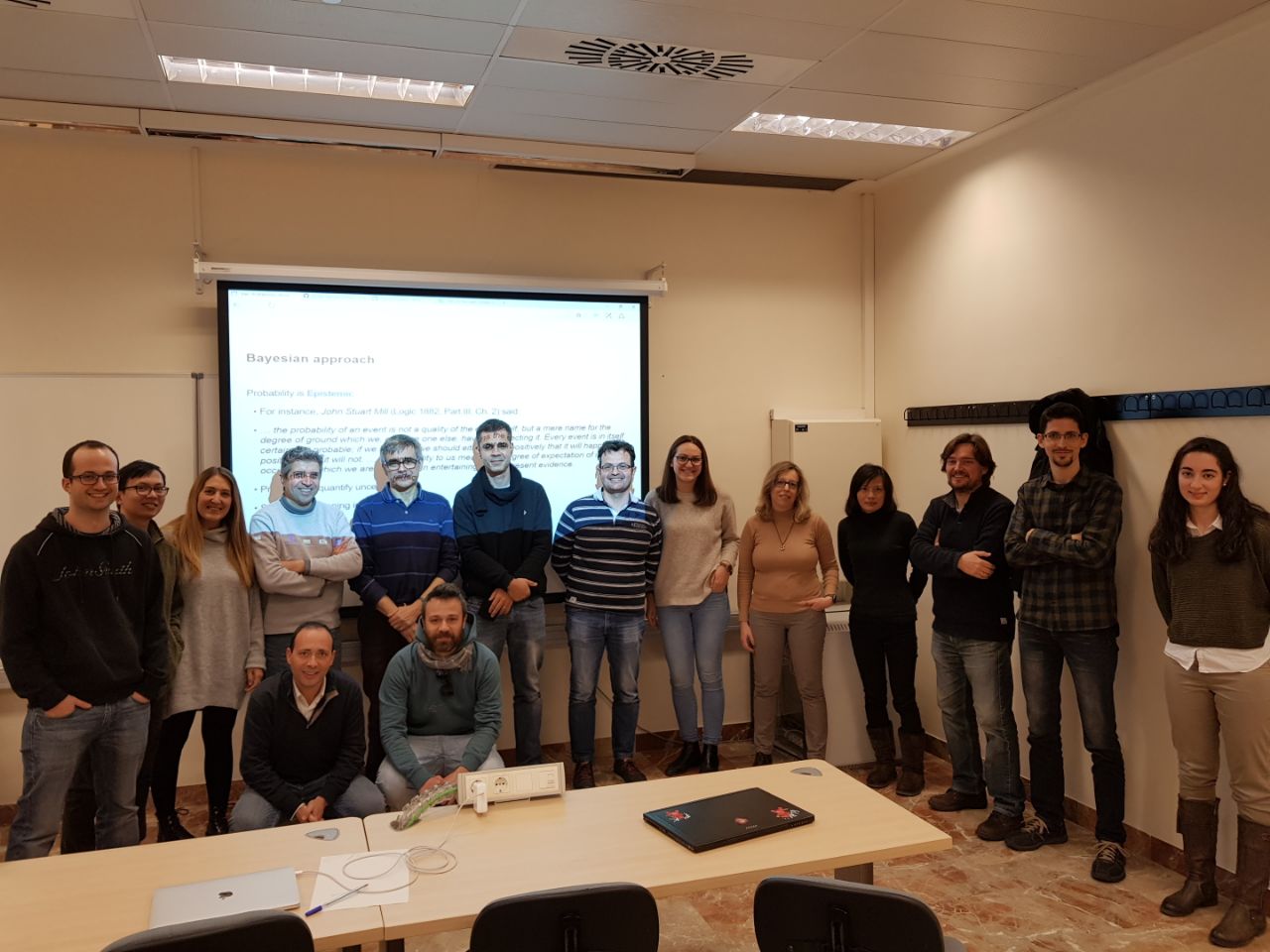An introduction to Stan with R
An introduction to Stan with R
Abstract
Stan is a probabilistic programming language for specifying statistical models. Stan provides full Bayesian inference for continuous-variable models through Markov Chain Monte Carlo methods such as the No-U-Turn sampler, an adaptive form of Hamiltonian Monte Carlo sampling. Penalized maximum likelihood estimates are calculated using optimization methods such as the limited memory Broyden-Fletcher-Goldfarb-Shanno algorithm. Stan can be called through R using the rstan package, and through Python using the pystan package. Both interfaces support sampling and optimization-based inference with diagnostics and posterior analysis. In this talk it is shown a brief glance about the main properties of Stan. It is shown, also a couple of examples: first one related with a simple Bernoulli model and second one, about a Lotka-Volterra model based on ordinary differential equations.
Requirements
This tutorial requires the rstan package and a C++ compiler (on Windows, the latest version of Rtools is required).
About the speaker
Ph.D. degree in Genetics from U. Complutense and Ph.D. degree in Statistics and O.R. from U. Complutense of Madrid. He has been professor in U. Complutense of Madrid, URJC and finally in U. Carlos III de Madrid from 2004. He works in Bayesian Statistics and Biostatistics.

